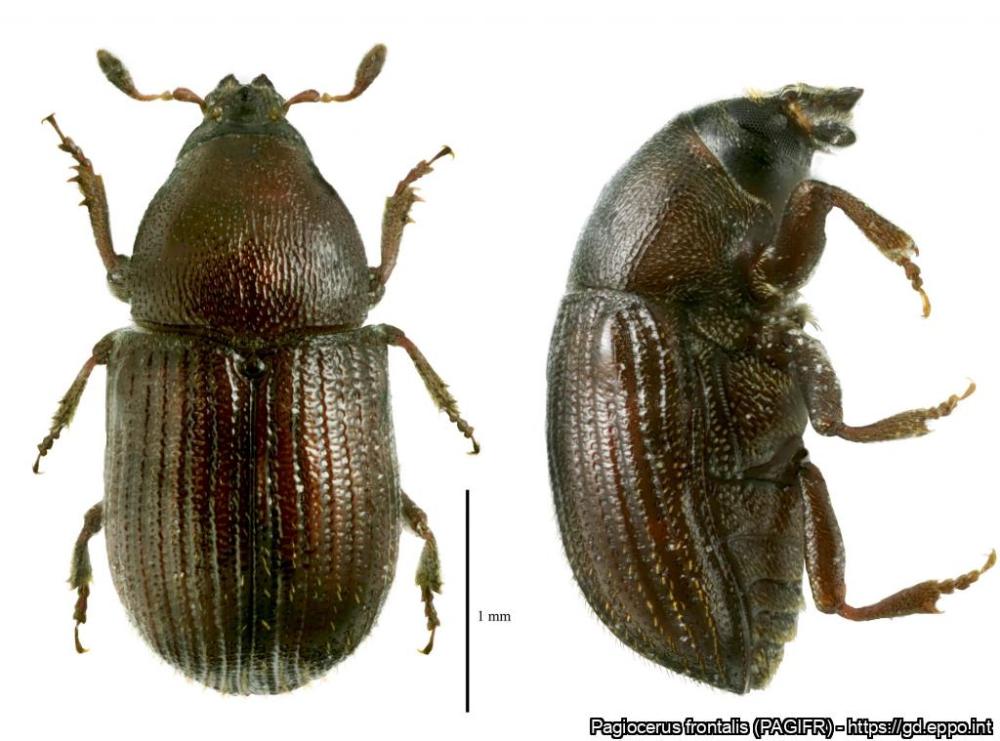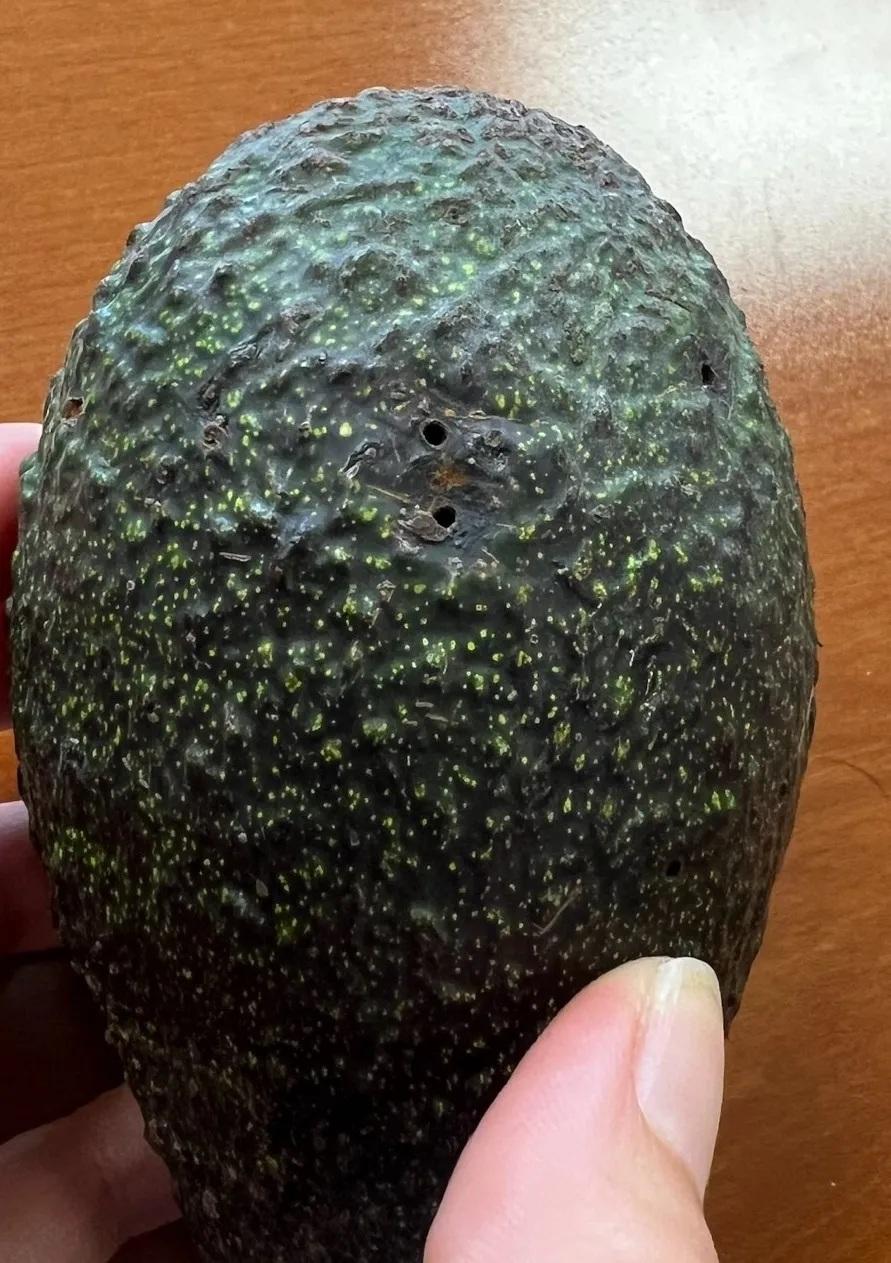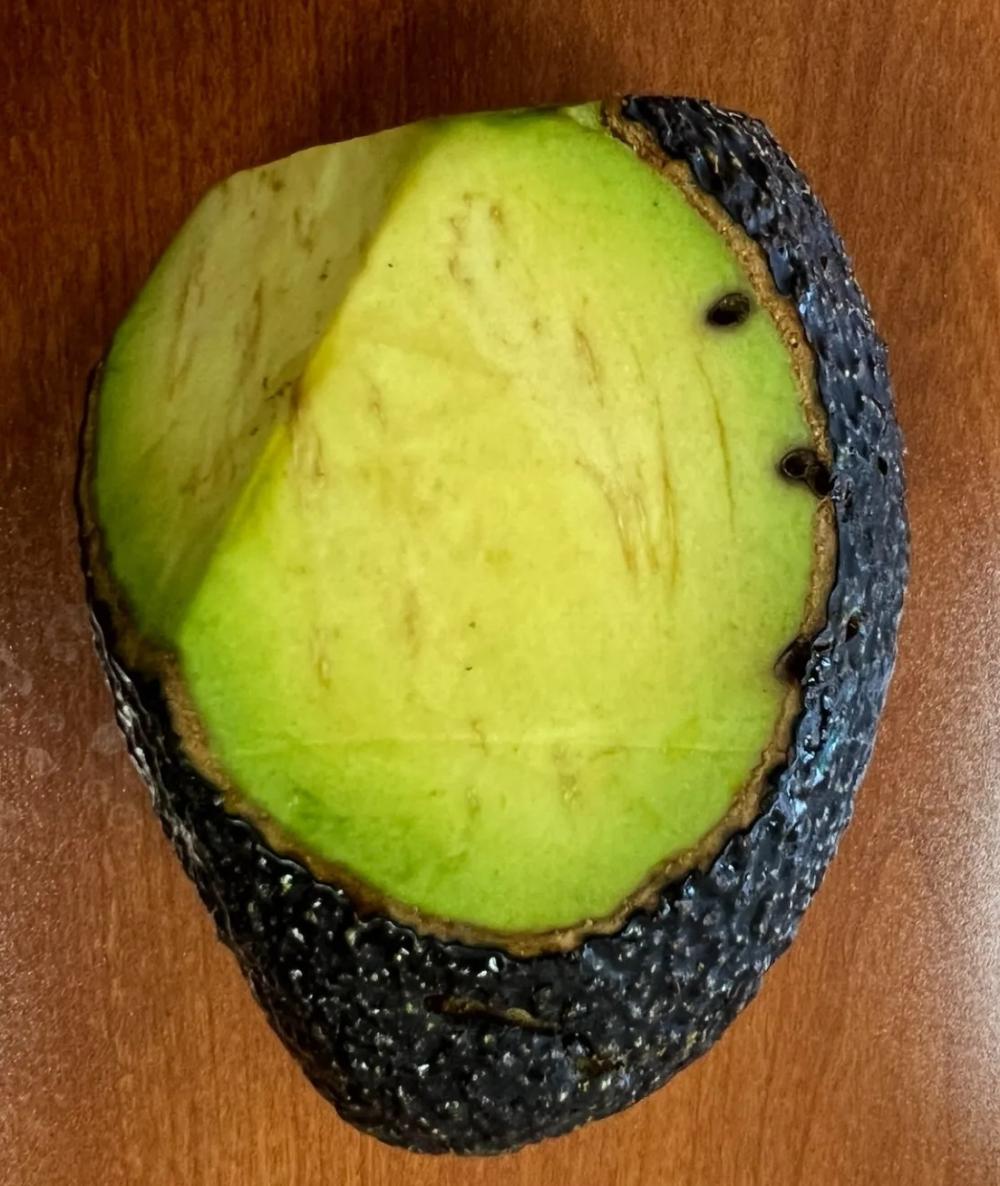Pagiocerus frontalis (Pf) is a tiny weevil — adults are about 3 mm (<1/8 inch) in length — native to South America, Central America, Mexico and the Southeastern United States. Presumably, it does not occur naturally in California; the California Department of Food and Agriculture first identified it being present in San Diego County in 2010.
During the polyphagus shot hole borer scare about 10 years ago, Pf was commonly collected in beetle traps in avocado groves. It was discovered that Pf feeds on the seeds of fallen avocado fruit and may occasionally be found attacking low hanging fruit in contact with the ground. In 2015, CDFA reports that Pf was only known in San Diego County, but today it can be found at least as far north as Ventura County.
In addition to avocado seeds, Pf is a major pest of stored corn in the new world tropics. One report online of an interception that occurred in Germany in corn shipped from Peru states that Pf “infests seeds of avocado, other plants of the Laurel family (Lauraceae) and maize, especially soft maize.”
Pf is an actionable pest in Japan and New Zealand, but since harvesting wind drop fruit is no longer allowed in California, it is unlikely fruit contaminated with this pest would ever enter the commercial market. In their initial pest risk assessment, CDFA concluded that Pf has the potential to have “limited economic and environmental impacts” in California.
The biology of this weevil is not fully understood, and it does show up in higher numbers from time to time, with this season being one of those times. Growers should not be alarmed if they see this pest on ground fruit or fruit in contact with the ground. However, should you observe something like this attacking fruit higher up in the canopy you should immediately alert your Pest Control Advisor or reach out to your UC Farm Advisor or CAC for further support.


